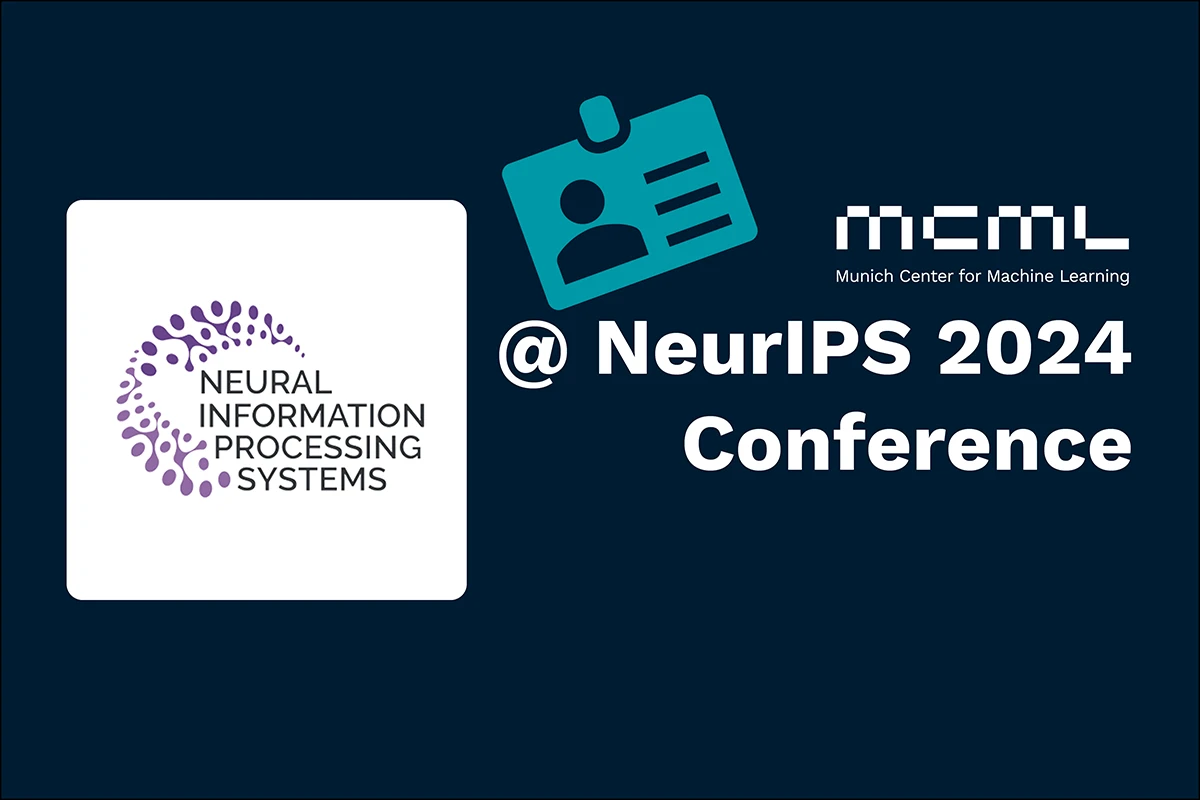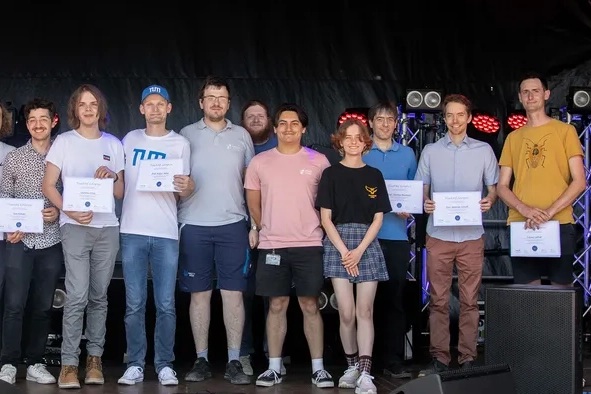Research Group Matthias Althoff
Matthias Althoff
is Professor of Cyber Physical Systems at TU Munich.
His research interests lie in systems whose computations are closely connected with their physical behavior. Referred to as cyber-physical systems, these systems require an integrated approach applying methods from computer science and engineering. Examples of such systems are autonomous vehicles, smart grids, intelligent production systems and medical robotics. Matthias Althoff’s research primarily focuses on formal methods for guaranteeing safety and correct operation as well as the model-based design of cyber-physical systems.
Team members @MCML
PhD Students
Recent News @MCML
Publications @MCML
2025
[13]

D. Ostermeier • J. Külz • M. Althoff
Automatic Geometric Decomposition for Analytical Inverse Kinematics.
IEEE Robotics and Automation Letters 10.10. Oct. 2025. DOI
Automatic Geometric Decomposition for Analytical Inverse Kinematics.
IEEE Robotics and Automation Letters 10.10. Oct. 2025. DOI
[12]
Y. Lin • S. Illing • M. Althoff
SanDRA: Safe Large-Language-Model-Based Decision Making for Automated Vehicles Using Reachability Analysis.
Preprint (Oct. 2025). arXiv GitHub
SanDRA: Safe Large-Language-Model-Based Decision Making for Automated Vehicles Using Reachability Analysis.
Preprint (Oct. 2025). arXiv GitHub
[11]
M. Müller • F. Finkeldei • H. Krasowski • M. Arcak • M. Althoff
Falsification-Driven Reinforcement Learning for Maritime Motion Planning.
Preprint (Oct. 2025). arXiv
Falsification-Driven Reinforcement Learning for Maritime Motion Planning.
Preprint (Oct. 2025). arXiv
[10]
T. Walter • H. Markgraf • J. Külz • M. Althoff
Leveraging Analytic Gradients in Provably Safe Reinforcement Learning.
IEEE Open Journal of Control Systems Early Access. Sep. 2025. DOI
Leveraging Analytic Gradients in Provably Safe Reinforcement Learning.
IEEE Open Journal of Control Systems Early Access. Sep. 2025. DOI
[9]
J. Külz • S. Ha • M. Althoff
A Design Co-Pilot for Task-Tailored Manipulators.
Preprint (Sep. 2025). arXiv
A Design Co-Pilot for Task-Tailored Manipulators.
Preprint (Sep. 2025). arXiv
[8]
L. Lützow • M. Eichelbeck • M. J. Kochenderfer • M. Althoff
Zono-Conformal Prediction: Zonotope-Based Uncertainty Quantification for Regression and Classification Tasks.
Preprint (Aug. 2025). arXiv
Zono-Conformal Prediction: Zonotope-Based Uncertainty Quantification for Regression and Classification Tasks.
Preprint (Aug. 2025). arXiv
[7]

J. Külz • M. Terzer • M. Magri • A. Giusti • M. Althoff
Holistic Construction Automation with Modular Robots: From High-Level Task Specification to Execution.
IEEE Transactions on Automation Science and Engineering Early Access. Jun. 2025. DOI
Holistic Construction Automation with Modular Robots: From High-Level Task Specification to Execution.
IEEE Transactions on Automation Science and Engineering Early Access. Jun. 2025. DOI
2024
[6]

R. Stolz • H. Krasowski • J. Thumm • M. Eichelbeck • P. Gassert • M. Althoff
Excluding the Irrelevant: Focusing Reinforcement Learning through Continuous Action Masking.
NeurIPS 2024 - 38th Conference on Neural Information Processing Systems. Vancouver, Canada, Dec 10-15, 2024. URL
Excluding the Irrelevant: Focusing Reinforcement Learning through Continuous Action Masking.
NeurIPS 2024 - 38th Conference on Neural Information Processing Systems. Vancouver, Canada, Dec 10-15, 2024. URL
[5]
P. Gassert • M. Althoff
Stepping Out of the Shadows: Reinforcement Learning in Shadow Mode.
Preprint (Oct. 2024). arXiv
Stepping Out of the Shadows: Reinforcement Learning in Shadow Mode.
Preprint (Oct. 2024). arXiv
[4]
H. Krasowski
Guaranteeing Complex Safety Specifications for Autonomous Vehicles via Reinforcement Learning with Formal Methods.
Dissertation TU München. Jul. 2024. URL
Guaranteeing Complex Safety Specifications for Autonomous Vehicles via Reinforcement Learning with Formal Methods.
Dissertation TU München. Jul. 2024. URL
[3]
H. Krasowski • M. Althoff
Provable Traffic Rule Compliance in Safe Reinforcement Learning on the Open Sea.
IEEE Transactions on Intelligent Vehicles Early Access. May. 2024. DOI
Provable Traffic Rule Compliance in Safe Reinforcement Learning on the Open Sea.
IEEE Transactions on Intelligent Vehicles Early Access. May. 2024. DOI
2023
[2]

J. Külz • M. Mayer • M. Althoff
Timor Python: A Toolbox for Industrial Modular Robotics.
IROS 2023 - IEEE/RSJ International Conference on Intelligent Robots and Systems. Detroit, MI, USA, Oct 01-05, 2023. DOI
Timor Python: A Toolbox for Industrial Modular Robotics.
IROS 2023 - IEEE/RSJ International Conference on Intelligent Robots and Systems. Detroit, MI, USA, Oct 01-05, 2023. DOI
[1]
T. Ladner • M. Althoff
Automatic Abstraction Refinement in Neural Network Verification Using Sensitivity Analysis.
HSCC 2023 - 26th ACM International Conference on Hybrid Systems: Computation and Control. San Antonio, TX, USA, May 09-12, 2023. DOI
Automatic Abstraction Refinement in Neural Network Verification Using Sensitivity Analysis.
HSCC 2023 - 26th ACM International Conference on Hybrid Systems: Computation and Control. San Antonio, TX, USA, May 09-12, 2023. DOI
©all images: LMU | TUM







